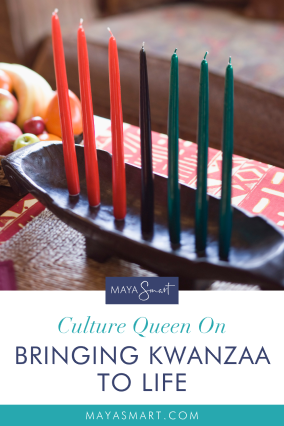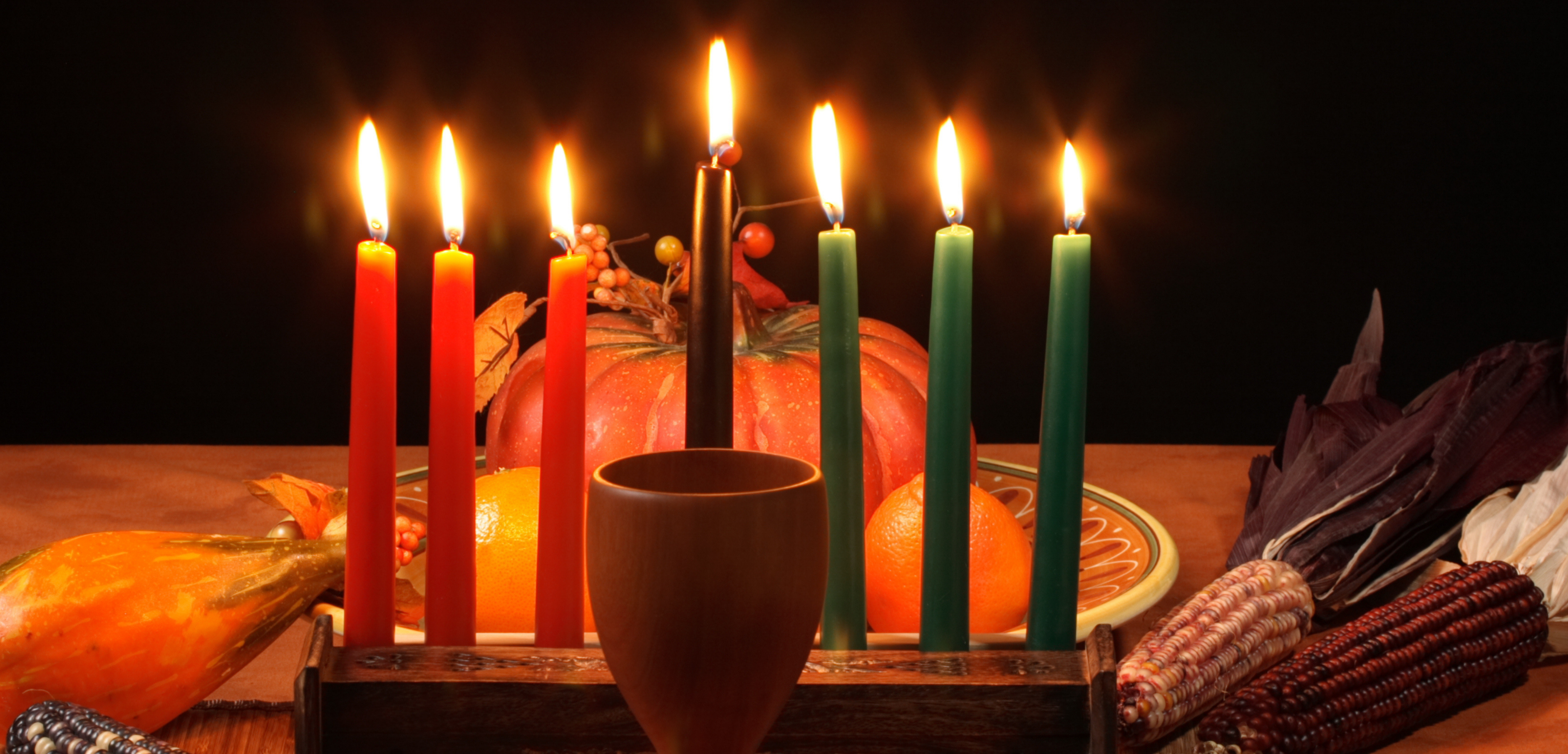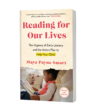In December 2014, I attended a Kwanzaa workshop at Central Montessori School in Richmond, Virginia, that continues to resonate, across years and miles. The speaker was Kwanzaa educator Jessica “Culture Queen” Hebron, and her celebration—culturally rooted, historically aware, hands-on, and high-energy—introduced Kwanzaa to my toddler daughter in grand fashion. She transformed the gathering space with an ornate Kwanzaa table and song, dance, crafts, and stories that kept families engaged from beginning to end.
Culture Queen’s hallmark is crafting experiences that leave kids humming with positivity and enthusiasm for themselves and African American culture. Her method builds self-esteem through repetition and affirmation; her multisensory engagement immerses kids in a world of color, sound, movement, and excitement. She stimulates young minds through the body, then uses stories and activities to make important cultural and historical lessons stick.
Recently, I had the opportunity to chat with her about her own formative Kwanzaa experiences and how we parents can introduce or elevate the holiday in our own homes this holiday season. Here’s an excerpt from our conversation.
What’s your first Kwanzaa memory?
Well, the very first one was with a family friend named Njambi. She was our aunt’s best friend, and she was very Afrocentric. She invited us to a celebration in someone’s home and I didn’t understand what was going on at the time; I just knew that there was a lot of stuff about Africa and there was music and drumming and dancing and great food. And I remember liking it because I loved everything she did, because she was like a cultural fairy godmother.
My first official Kwanzaa celebration was with Jack and Jill and it was in the early nineties. I was probably in second grade—I have the picture from it. My mom dressed my sister and me in matching African outfits and I remember the whole room being decorated with red, black and green balloons and streamers. And, you know, I remember the parents of my friends working together to create the ceremony and to educate us. It was great. Since then I’ve been to many more and facilitated many more, but I have the picture from my first, so it’s kind of cool to see that I still do it now.
What’s kept you celebrating it all these years?
Most holidays that we have are so old. You might know the origins from looking them up, but you really can’t pinpoint a founder. So the founder of Kwanzaa is still alive. I’ve met him several times and he’s aware of my work. Kwanzaa is only 53 years old.
It’s not our only African American holiday, but it’s our only African American holiday that lasts seven days. This is the big one. I think it’s really cool that black people have something just for them that lasts seven days, helps you to align yourself culturally, and gives you a cultural sense of self.
If you’re trying to find yourself and you’re trying to figure out what it means to be black and American or African American, [Kwanzaa celebrates] very uplifting, positive, universal principles that you can try to follow and align your life with to give yourself self-empowerment. When I was a kid, I didn’t know that I would take such a liking to it, but I just liked anything that made me feel black and proud.
Every year, the thing that keeps me celebrating Kwanzaa is to help to teach other people who might have misconceptions about it. I try to make the celebration seem so fun and enticing that it’s effortless for them to celebrate and they see how easy it is to incorporate it into their holiday traditions.
How do you think your own celebration of Kwanzaa has evolved over time as you’ve gained experience with the ceremony and have performed it yourself and participated in different versions of it over time?
It’s always a creative challenge to see how do I keep it fresh for the year and every year. Even though I try to have some things that I do every single year, I always try to challenge myself to do one thing differently.
[The first] year I had my sister, who’s an architect and interior designer, design me a really giant kinara, the Kwanzaa candle holder…When I’m doing big events, I want people to be able to see it because I’m teaching from it. The prop didn’t hold up too well after so many programs, so for the second year, she designed it out of wood, and that was amazing. The third year I asked her could we make the candles flameless LED candles so I could let the kids have the experience of lighting the candles without us having to do fire. In this 10th year, I actually had my logo engraved on all of the Kwanzaa kinaras. I also had a collapsible Kwanzaa set designed so that when I’m traveling on a plane or going from place to place I can lift it.
For me, it’s about how do I use ingenuity to make Kwanzaa engaging. There is a competition with Christmas, I have to admit. Christmas is glittery. It’s sparkling. It’s a big holiday and full of decorations. So what I try to do is not compare Kwanzaa to Christmas, but to give it the same magic as Christmas. I really try to make the activities, the music, and the decorations super eye- catching and exciting so that it appeals to children. Every year I have a challenge: How do I recreate this Kwanzaaland so that people feel like they’re stepping into a world?
How do you keep learning and deepening your own understanding of Kwanzaa?
I always go back to the Kwanzaa founder Dr. Maulana Karenga’s book on Kwanzaa and the official Kwanzaa website. It’s interesting, I’ve found that some adults that started celebrating Kwanzaa when it first came out do it differently. They have their own way.
I think the main thing for me is trying to keep the integrity of Kwanzaa like people would keep the integrity of other holidays. That’s one thing that honestly irks me. When I see a holiday celebration that celebrates everything but Kwanzaa or the care that was taken to have the Christmas tree and the care that was taken to have the menorah and then there’s not the same care for the Kwanzaa display. That really bothers me because there’s just no excuse with the internet and Amazon Prime.
Do you think Kwanzaa is growing in popularity or declining in popularity?
I think Kwanzaa is growing. I think that it’s promising. I don’t think it’s going anywhere. And I think actually the political climate that we have with Donald Trump and all that’s happening [supports that]. I can’t remember who said this, but it was an African American writer who said something along the lines of, When we have racial injustice and political unrest in our culture, that’s the time when the best black art comes around and that’s the time when the best resistances to make change happen. So actually this political season that we’re in is even more reason why we should draw near to our cultural sense of self. I’m thinking that Kwanzaa will inspire parents more if they understand how easy it is to incorporate into their existing family traditions.
This interview has been edited for brevity and clarity.
Pin Me for Reference :

Culture Queen Resources
Do you celebrate Kwanzaa? If so, how did you first learn about it and what keeps you celebrating it? If you don’t, why not?


